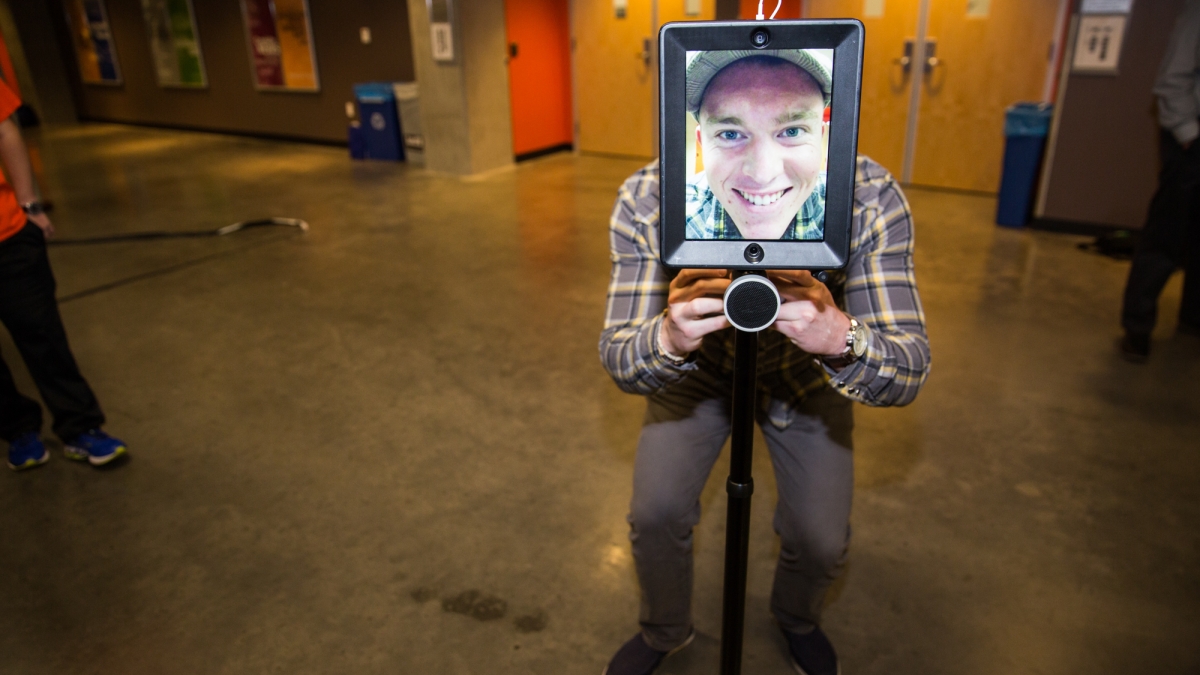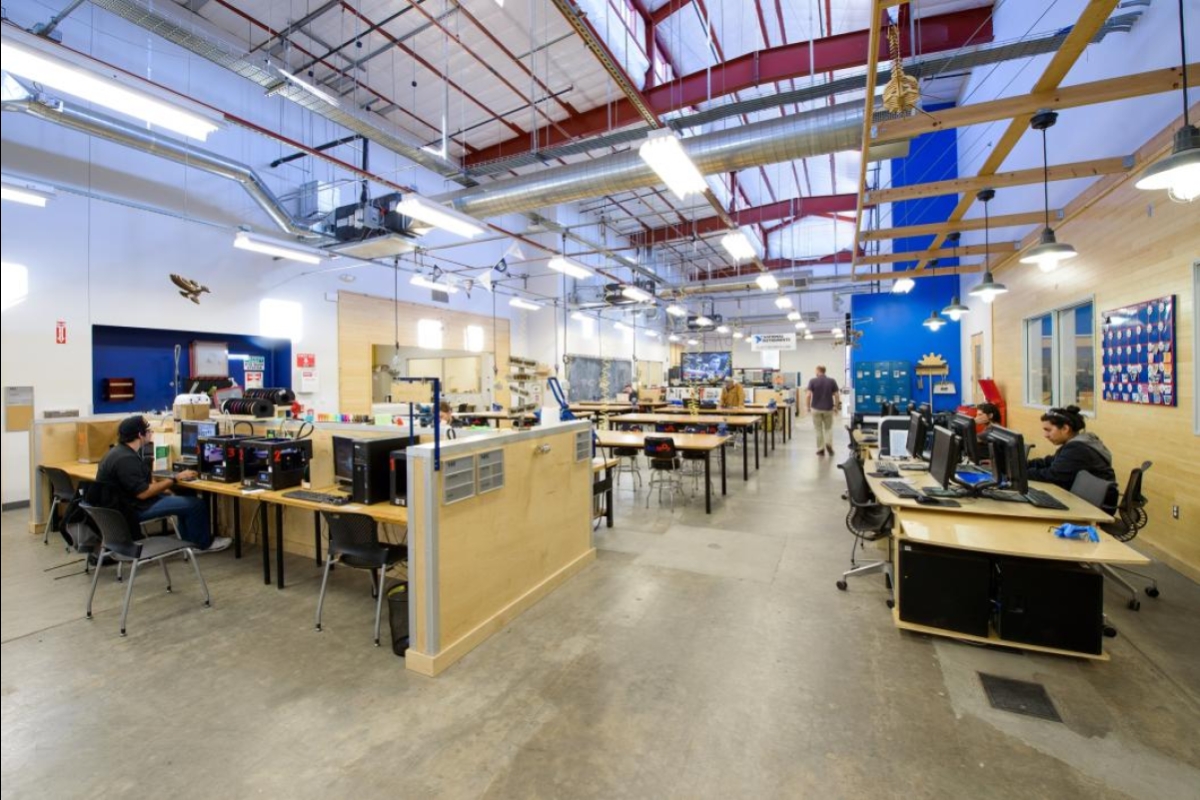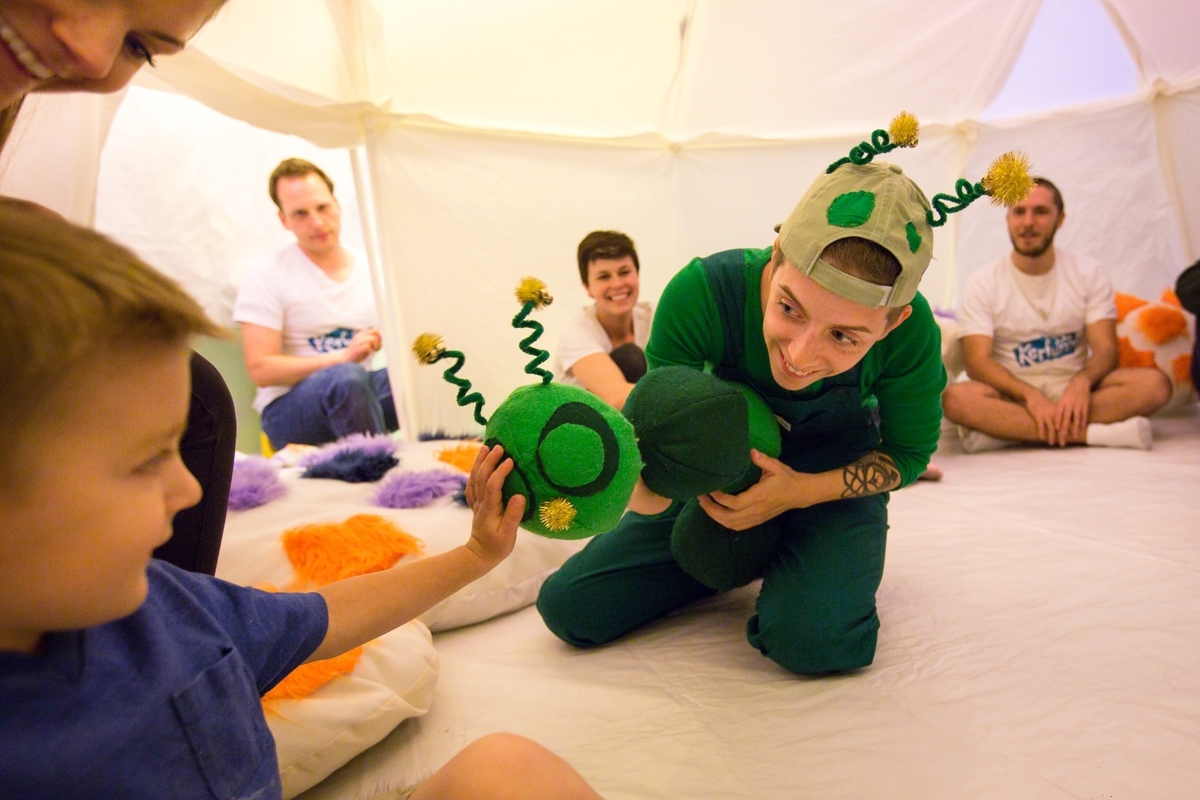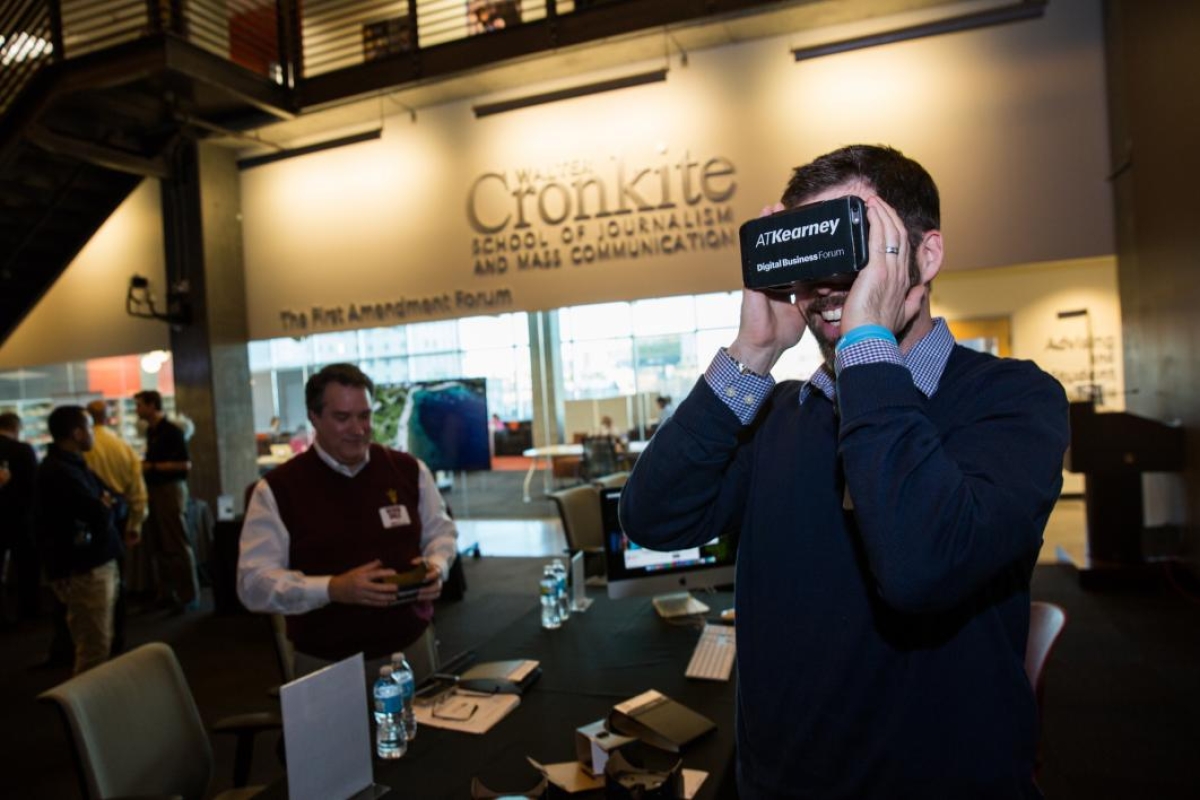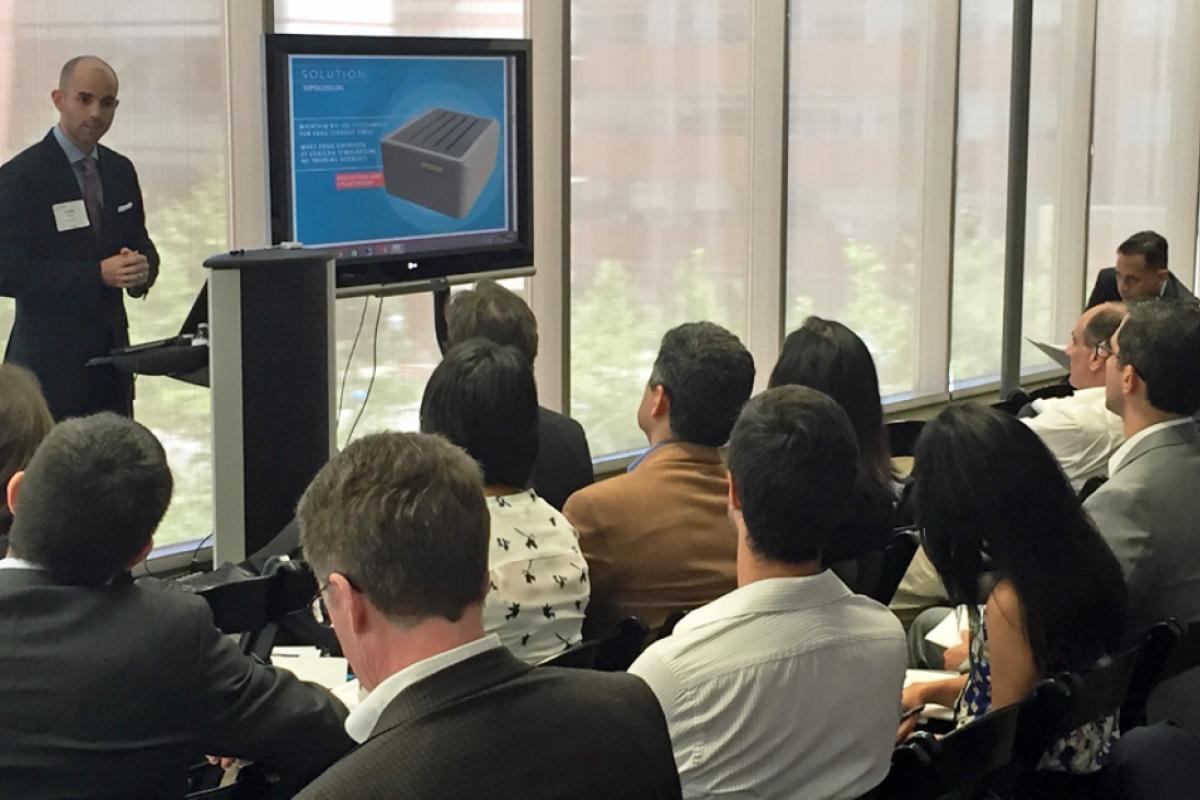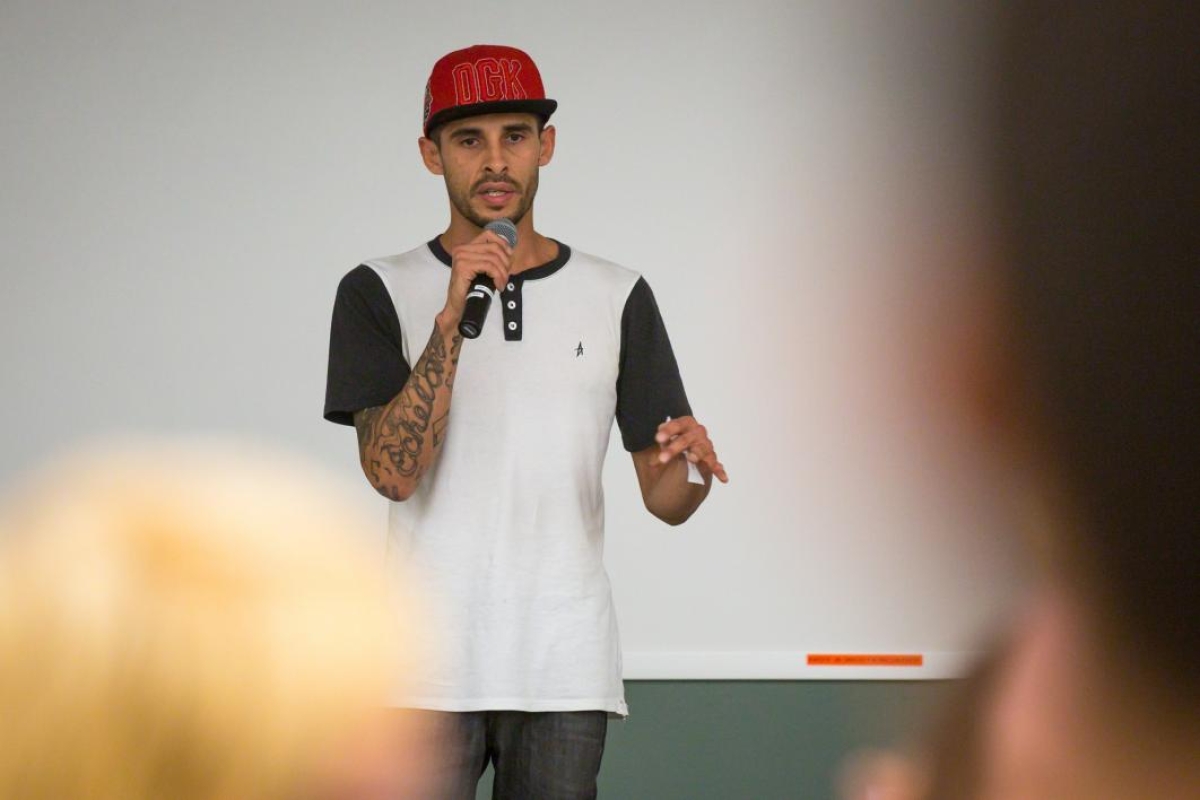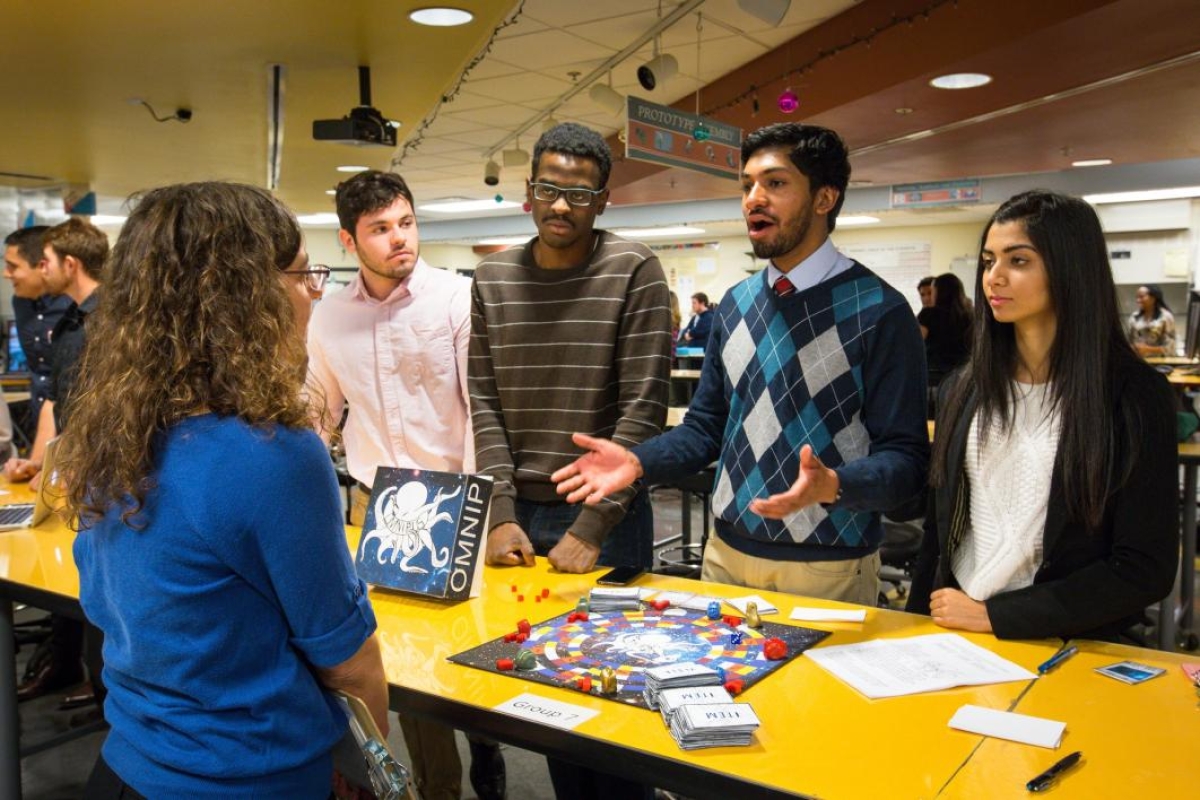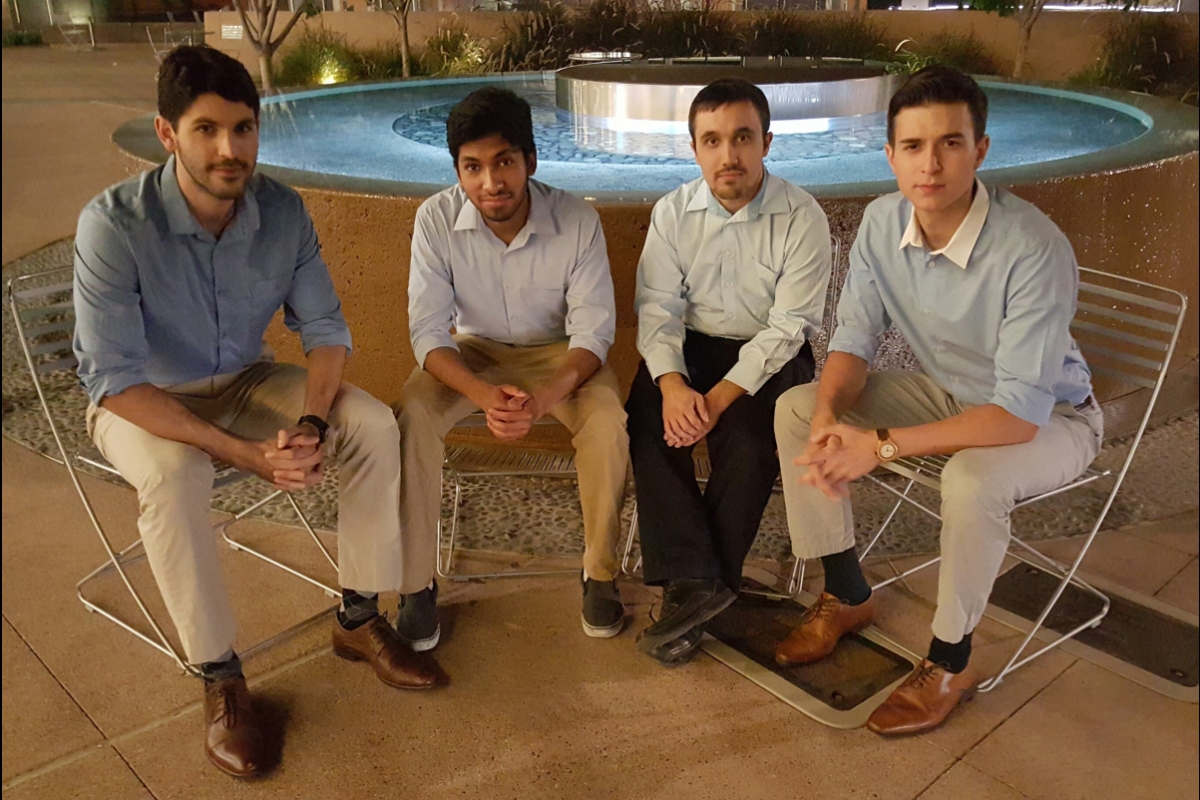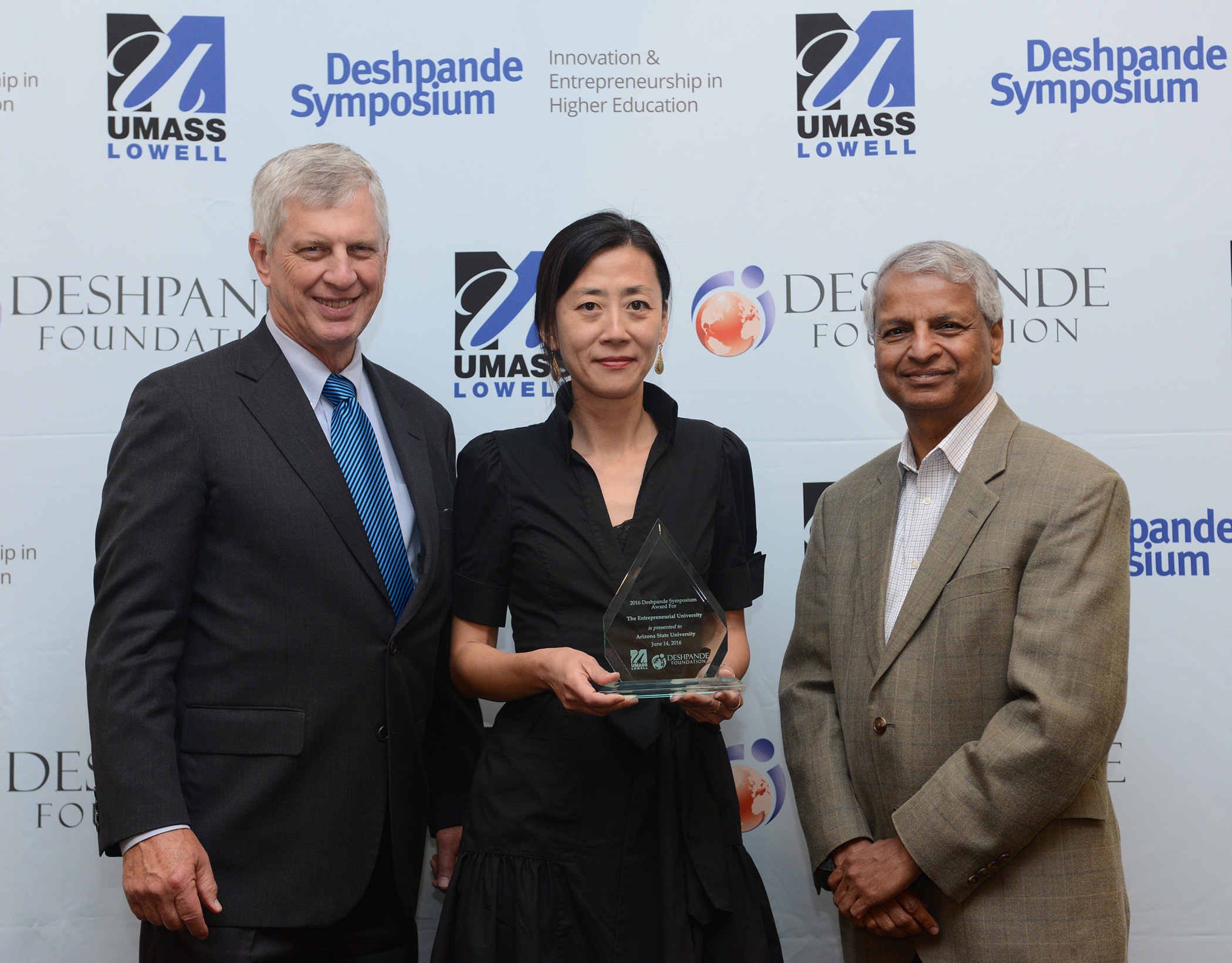Editor's note: This story is being highlighted in ASU Now's year in review. To read more top stories from 2016, click here.
Arizona State University’s entrepreneurial spirit was honored Tuesday night at the annual Deshpande Symposium for Innovation and Entrepreneurship in Higher Education.
At the symposium in Lowell, Massachusetts, ASU representative Ji Mi Choi, associate vice president of strategic partnerships and programs, was presented with the Entrepreneurial University Award, a recognition of ASU’s support of entrepreneurial programs and curriculum across the institution, from student startups to maker spaces to projects aimed at having an immediate impact on the world.
“It was the opinion of the Awards Committee that Arizona State University best exemplified a strong overall commitment to foster entrepreneurship across an institution by building both innovative educational courses and programs as well as student engagement at many levels,” wrote Raj Melville, executive director of the Deshpande Foundation, a philanthropic organization dedicated to advancing entrepreneurship and innovation as catalysts for social change.
Here’s a look at seven activities that contributed to ASU’s newest honor:
A culture of startup support
This newest accolade builds ASU’s credibility as a forward-thinking institution that values new ideas: In 2016, U.S. News & World Report ranked ASU as the “Most Innovative School,” ahead of Stanford, MIT, Duke, Harvard and Cornell.
In fiscal year 2015, ASU faculty were issued 62 U.S. patents, launched 12 new companies and submitted 270 invention disclosures to Arizona Technology Enterprises, which attracted more than $40 million in new external funding. ASU’s venture development activities have led to the formation and assistance of more than 80 companies; in Arizona, four of these companies alone represent more than 350 jobs created.
Recently launched ASU student-led startups have won numerous external and intercollegiate competitions. They include Let's Chat, a language-learning app; Neolight, a medical-device solution for babies with jaundice; and Epifinder, a tool that enables faster diagnosis and treatment for epileptic patients.
For Elizabeth Oviedo, a 2016 graduate of ASU’s W. P. Carey School of Business’ MBA program, the recognitions reflect reality. She said that ASU is unparalleled in its support for student entrepreneurs because of the accessibility of its faculty and staff and their willingness to help student startups regardless of what department they were based in.
“As a New American University, ASU’s design aspirations guide its growth and transformation. Among these principles is a deep commitment to entrepreneurship in all forms,” said ASU Knowledge Enterprise Development Executive Vice President Sethuraman Panchanathan. “That means more than a class or a program: it is a mind-set woven into the university’s culture. Entrepreneurship radiates from the heart of ASU’s mission to produce innovations of the future and the master learners who will lead us there.”
Ji Mi Choi, associate vice president of strategic partnerships and programs, accepts ASU’s Outstanding Achievement as an Entrepreneurial University Award from Jack Wilson (left), president emeritus of the UMass system and UMass Lowell distinguished professor of higher education, emerging technologies and innovation, and entrepreneur Gururaj “Desh” Deshpande on Tuesday at the Deshpande Symposium on Innovation and Entrepreneurship in Higher Education in Lowell, Massachusetts. Photo by Tory Germann for UMass Lowell
Top photo: A journalism student poses for a portrait using the telepresence robot during Innovation Day at the Walter Cronkite School of Journalism and Mass Communication on Jan. 20. Photo by Deanna Dent/ASU Now
More Science and technology

Stuck at the airport and we love it #not
Airports don’t bring out the best in people.Ten years ago, Ashwin Rajadesingan was traveling and had that thought. Today, he is an assistant professor at the University of Texas at Austin, but back…

ASU in position to accelerate collaboration between space, semiconductor industries
More than 200 academic, business and government leaders in the space industry converged in Tempe March 19–20 for the third annual Arizona Space Summit, a statewide effort designed to elevate…

A spectacular celestial event: Nova explosion in Northern Crown constellation expected within 18 months
Within the next year to 18 months, stargazers around the world will witness a dazzling celestial event as a “new” star appears in the constellation Corona Borealis, also known as the Northern Crown.…


